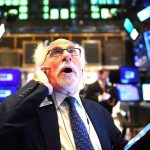
Allbirds has officially filed to become a publicly traded company. But rather than a traditional IPO … [+]
Allbirds, credited as having literally created the category of woven footwear, has officially filed for its initial public offering (IPO) and will be listed on Nasdaq
The company’s sustainability focus brings with it both benefits and challenges. Its offering status will be assessed by an independent third party, evaluating its commitment to environmental, social, and governmental (ESG) criteria. This may result in Allbirds becoming the first-ever SPO, or “sustainable public equity offering.” Given the companies near cult status, its listing will likely attract throngs of Millennial and Gen Z investors who have taken to the stock market like moths to a flame.
On the flip side, the costs involved in developing and sourcing the raw materials at the core of their sustainable footwear and newly introduced performance and activewear are significant. Replacing the industries reliance on synthetics with their signature merino wool and yarn created from eucalyptus trees has its own unique sourcing challenges.
Additionally, as is often the case with industry disrupting technology, copycats are emerging, and in this case it’s the most predatory cat on the block. In 2019 Amazon
Allbirds filing noted its brand strength, with nearly 98% of its sales throughout its history, being at full price. Additionally, just over half of its sales in 2020 came from repeat customers, not bad indeed. On the flip side, like many of the other shiny DTC brands, black ink is not distinct. The brand generated $219 million in revenue in 2020, up from 2019’s $194 million. But net losses also climbed from $14.5 million in 2019 to $25.9 million in 2020, and losses of $21 million were generated in the first 6 months of this year.
MORE FOR YOU
In order to properly support their digital native offering Allbirds has opened 27 stores as of June 30, including the one I reviewed in Minneapolis. The digital channel still represents 89% of sales. The IPO (or SPO) funds will be used toward working capital, operating expenses, and capital expenditures. But the company would not rule out investing in complementary businesses, services, products, or technology. Morgan Stanley







